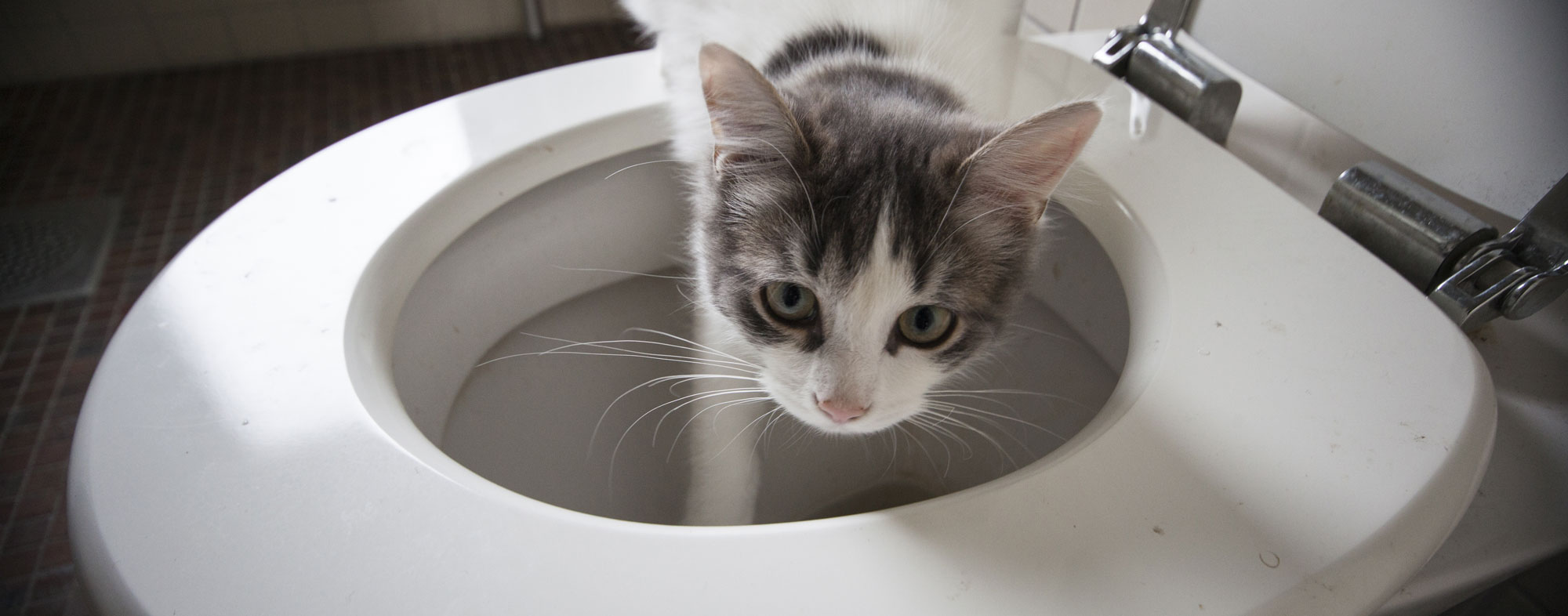Hazards of Flushing Cat Poop Down Your Toilet - Prevent Possible Problems
Hazards of Flushing Cat Poop Down Your Toilet - Prevent Possible Problems
Blog Article
Have you been hunting for info around Don’t flush cat feces down the toilet?

Introduction
As cat proprietors, it's vital to bear in mind just how we take care of our feline friends' waste. While it might appear hassle-free to purge feline poop down the bathroom, this practice can have destructive effects for both the atmosphere and human health and wellness.
Alternatives to Flushing
Thankfully, there are safer and more responsible means to take care of pet cat poop. Think about the complying with alternatives:
1. Scoop and Dispose in Trash
The most common method of disposing of pet cat poop is to scoop it right into a biodegradable bag and throw it in the garbage. Make sure to use a dedicated clutter scoop and throw away the waste immediately.
2. Use Biodegradable Litter
Opt for eco-friendly feline litter made from products such as corn or wheat. These trashes are eco-friendly and can be securely dealt with in the garbage.
3. Hide in the Yard
If you have a backyard, think about burying feline waste in a designated location away from veggie gardens and water sources. Make sure to dig deep enough to stop contamination of groundwater.
4. Set Up a Pet Waste Disposal System
Buy a pet dog waste disposal system particularly made for cat waste. These systems utilize enzymes to break down the waste, lowering odor and environmental effect.
Wellness Risks
In addition to environmental concerns, flushing feline waste can likewise posture health risks to humans. Feline feces may consist of Toxoplasma gondii, a bloodsucker that can create toxoplasmosis-- a possibly extreme ailment, specifically for pregnant women and individuals with weakened immune systems.
Environmental Impact
Flushing cat poop introduces damaging microorganisms and bloodsuckers right into the water, posturing a significant risk to marine ecosystems. These contaminants can adversely influence aquatic life and concession water high quality.
Conclusion
Accountable family pet ownership extends beyond providing food and sanctuary-- it additionally entails correct waste administration. By refraining from flushing feline poop down the bathroom and choosing alternative disposal methods, we can decrease our ecological footprint and safeguard human health.
Why Can’t I Flush Cat Poop?
It Spreads a Parasite
Cats are frequently infected with a parasite called toxoplasma gondii. The parasite causes an infection called toxoplasmosis. It is usually harmless to cats. The parasite only uses cat poop as a host for its eggs. Otherwise, the cat’s immune system usually keeps the infection at low enough levels to maintain its own health. But it does not stop the develop of eggs. These eggs are tiny and surprisingly tough. They may survive for a year before they begin to grow. But that’s the problem.
Our wastewater system is not designed to deal with toxoplasmosis eggs. Instead, most eggs will flush from your toilet into sewers and wastewater management plants. After the sewage is treated for many other harmful things in it, it is typically released into local rivers, lakes, or oceans. Here, the toxoplasmosis eggs can find new hosts, including starfish, crabs, otters, and many other wildlife. For many, this is a significant risk to their health. Toxoplasmosis can also end up infecting water sources that are important for agriculture, which means our deer, pigs, and sheep can get infected too.
Is There Risk to Humans?
There can be a risk to human life from flushing cat poop down the toilet. If you do so, the parasites from your cat’s poop can end up in shellfish, game animals, or livestock. If this meat is then served raw or undercooked, the people who eat it can get sick.
In fact, according to the CDC, 40 million people in the United States are infected with toxoplasma gondii. They get it from exposure to infected seafood, or from some kind of cat poop contamination, like drinking from a stream that is contaminated or touching anything that has come into contact with cat poop. That includes just cleaning a cat litter box.
Most people who get infected with these parasites will not develop any symptoms. However, for pregnant women or for those with compromised immune systems, the parasite can cause severe health problems.
How to Handle Cat Poop
The best way to handle cat poop is actually to clean the box more often. The eggs that the parasite sheds will not become active until one to five days after the cat poops. That means that if you clean daily, you’re much less likely to come into direct contact with infectious eggs.
That said, always dispose of cat poop in the garbage and not down the toilet. Wash your hands before and after you clean the litter box, and bring the bag of poop right outside to your garbage bins.
https://trenchlesssolutionsusa.com/why-cant-i-flush-cat-poop/
Do you enjoy reading about Don’t flush cat feces down the toilet? Give a comment further down. We'd be interested to listen to your ideas about this post. We hope to see you back again later on. Do you know about another person who is sincerely interested in the subject? Do not hesitate to promote it. I am grateful for your time. Please stop by our website back soon.
Request Estimate Report this page